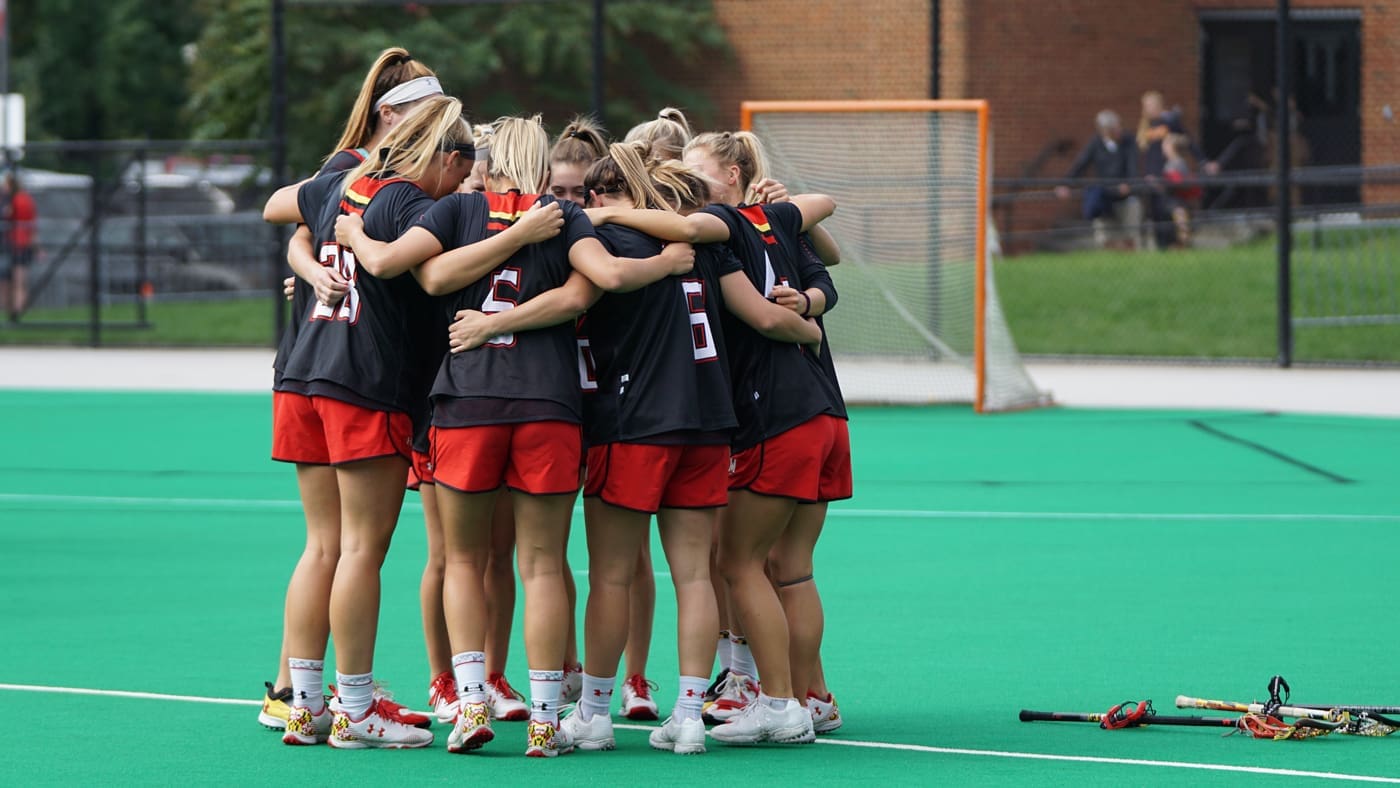
Get stories and expert advice on all things related to college and parenting.

Your student-athlete has loved playing their favorite sport their whole life. It’s been a source of pride, friendship, and growth since they were young.
Sports helped your student athlete develop important skills like leadership and teamwork. And when your student went on to college, they carried their love of sports with them.
But now, one, two, or three years into college, your student is over it. They say they want to quit the sport they’ve played their entire life.
Maybe this sport woke you up before the sun for practices and away games. The sport you joined the booster club for, spending your free time fundraising so your student’s team could have the best equipment and a fighting chance against their rivals.
Maybe this sport is something you and your student have bonded over since they were small. Or maybe it’s what’s helping them pay for college with an athletic scholarship.
And now you’re worried about your student giving all that up.
The situation you are in isn’t as unusual as you might think. As many as 15% of college athletes with scholarships quit their sport while in school.
College sports offer many benefits to your student, including access to a fun and supportive social life, good exercise, a form of stress relief, and, for some talented athletes, a way to pay for college.
But college is a time of change. Teens are growing into adults and learning new things about themselves. Plus, they’re under pressure to excel in class, maybe hold down a job, and focus on preparing for a career after graduation.
The question is, should your student quit or not?
In some cases, a student’s problems with their sport are something they can work through and come out the other side better for it. In others, quitting may be the best (or only) choice.
To support your college athlete through the process of deciding whether to stay or quit sports, you need to understand why they are considering moving on in the first place.
Some of the most common reasons to quit college sports include:
This is probably the most common reason college athletes quit their sport. The demands of playing sports in college are high, and regularly compete with their academic pursuit.
Most college athletes can’t seriously plan on a career in their sport after college — under 2% end up going pro.
In college sports, students often wake up at 5 or 6 a.m. for training and practice before heading off for a full day of class and homework. There may be more practice later in the day. The sheer exhaustion factor of such a full schedule can be too much for some student-athletes.
Away games can mean your student needs to skip classes sometimes, making it even harder to perform well in school.
College coaches are rarely forgiving or willing to let students miss a practice or workout to study for a test. It’s up to your student to figure out how to do it all — and for some, the sacrifice is simply not worth it. For others, it’s just impossible to get good grades and keep up on the field at the same time.
One possible way your student can keep playing sports and stay on top of their school work is to seek the help of a tutor or study group.
College sports involve a lot of practices, training, and meetings. Not to mention the games and events, both at home and away.
Add it all up, and what was once a fun hobby might be consuming your student’s entire life. Besides barely being able to stay on top of schoolwork, they probably can’t join other clubs, hang out with friends (or make new ones), get a job, become an RA, or do anything else outside of their sports bubble.
Many students cite this lack of balance as their reason for quitting. They envy other students’ abilities to try new activities, take their time with homework, or simply relax with their dorm mates.
A possible solution may be for your student to develop better time management skills:
Sports are often a financial commitment for athletes and their families. Equipment, travel, and various fees can add up. This is all on top of paying for school, which we all know is not cheap.
Even college athletes with scholarships can face financial challenges — many receive less than half the total cost of attending school.
Your student may be able to get a part-time job, but balancing school and work on top of sports can be difficult. If your family cannot support your student’s athletic ambitions, the stress of figuring out how to pay for it can be enough to make some just want to give up entirely.
If money wasn’t a concern, would your student want to stay in sports? If so, consider the following:
Some coaches can be condescending and verbally abusive to players. No matter how hard your student works in practices and in games, they feel constantly disrespected by their coach.
This type of treatment amounts to emotional abuse, which no one should have to endure. Reporting the coach’s behavior should be considered, but if the culture of the team doesn’t change, your student may have a good reason to quit.
Even seemingly mild injuries can make participating in your student’s sport uncomfortable and difficult. Besides the physical pain of continuing to play after an injury, it’s also not fun to know you cannot play at your peak ability.
In this case, the answer may be to take the time off that’s needed to fully recover.
College is stressful for many students. Combine all the pressures of schoolwork, sports, and finding yourself in a new place, mix in homesickness, and you’ve got a recipe for college depression.
Depression can lead some students to want to give up everything. It feels like their only path to escape their problems. In reality, they may just need some time off and treatment.
If your student is suffering from depression, they may need help in the following ways:
College sports are much more serious than high school sports. It becomes a bit more like a professional business.
The demands are high, and coaches are unforgiving. Some students feel like the way they are treated by teammates and coaches is totally dependent on their athletic performance, making for a shallow social experience.
On top of all that, many athletes will work extremely hard and still get little to no playing time. Actually, playing is what makes sports fun.
When the fun starts to disappear and the demands of school increase, some students just lose their passion for the sport. If it doesn’t make them happy anymore, it may be time for your student to find a new passion.
Now that you understand some of the factors behind why college athletes quit sports, you can bring empathy to conversations with your student about this.
Remember, this is their choice. You may have sacrificed a lot to enable them to reach this level, and you’ve had your own dreams for them, but this decision needs to be about their dreams and what’s best for them.
With that in mind, just because your student says they want to quit doesn’t mean they should.
Hopefully, your student can stay in sports and find fulfillment in doing it. But it’s possible that quitting is the best choice for them.
Even if your student decides they do want to quit, they will likely miss their sport and their teammates.
Remind them that they don’t have to stop playing altogether — quitting the team means they can now join an intramural team or play with friends for fun. This can bring them many of the benefits of college sports without the pressures.
If your student does decide to stay in the game and keep playing, remember that your continued support plays an important role in helping them succeed. You can do things, even from a distance, to support your student-athlete, both on the field and off.
Read our guide on how best to support your college student athlete >